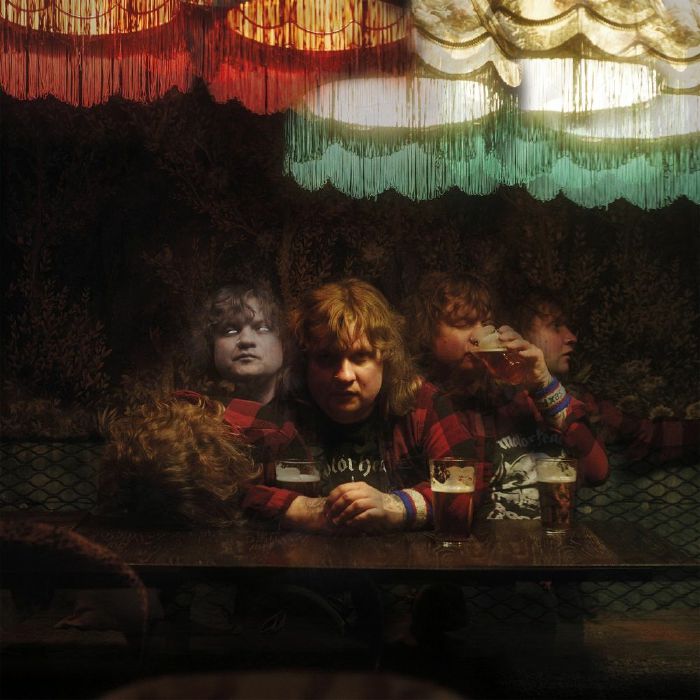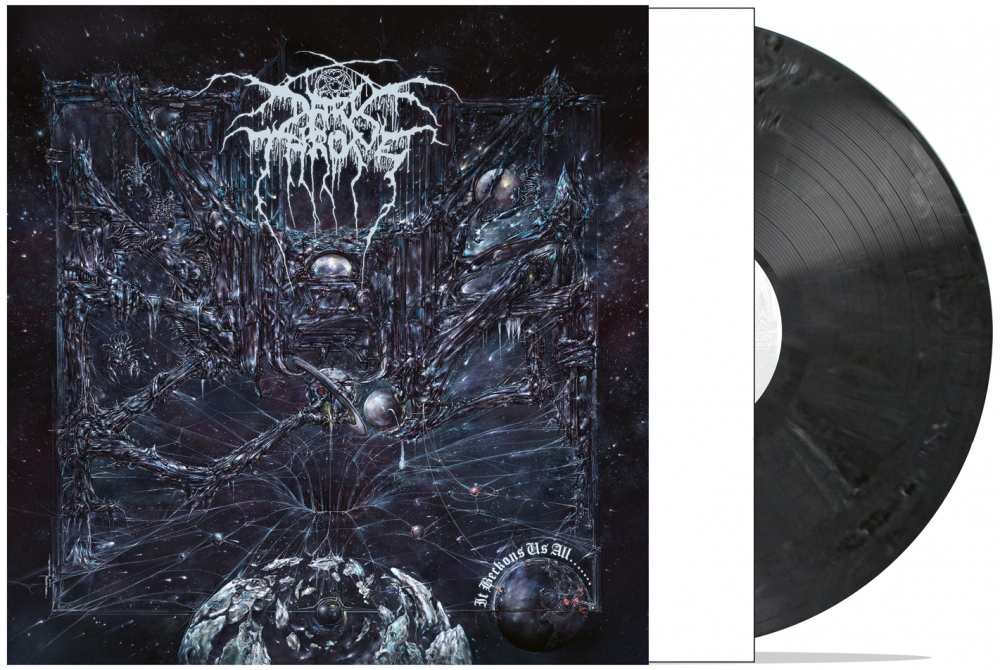
For fifteen years, Le Mur have been quietly (or not so quietly) crafting a unique noise that draws on a variety of influences ranging from jazz to alternative rock. Hailing from Bochum, in Germany, the band are an example of how location and culture can act as a filter, so that the interpretation of a seemingly ubiquitous sound can return to the listener transformed, making each new Le Mur album something very special indeed. Looking back at my notes, I am pleased to see that SonicAbuse’s association with the band goes right back to 2012, where we reviewed the excellent In Tenebris album, and we have been proud to cover the two subsequent albums (Silentia Nova and Exorta), always finding that the band have subtly evolved, without losing the core appeal that made In Tenebris feel so fresh and exciting.
Influenced by the “unnecessary psychological concerns of our society that have particularly surfaced and hit the headlines in the last decade”, Keep Your Fear Away from Me, is both musically and conceptually strong, showcasing yet another advance in the Le Mur sound. Entirely self-produced (including the recording and mix), it is typical of Le Mur to take such care of their output and the results are surely worth it, as this lovely, yellow vinyl edition of their album clearly demonstrates. With impressive artwork and, to my absolute delight, detailed liner notes, the band’s attention to detail remains undiminished, and it is a record that is as much a pleasure to hold and explore, as it is to hear.
With just four tracks, spread over nearly fifty minutes, Le Mur have stretched themselves on this one. It’s not an easy listen, but then art rarely is easy, and it starts with the fifteen-minute epic, …The Past Will Be Perfect… It emerges from a gentle haze of subtle noise – evoking the slow-burning majesty of Shine On You Crazy Diamond, before a somnolent beat edges things into Mogwai Territory. A kind of trip hop, post-rock, jazz crossover, it’s a beautifully constructed piece of music that is somehow timeless in execution. Where the psychedelic edge might root it in the 70s, the stunning production is modern, without being showy and, of course, as the track progresses, so diverse elements emerge from the shadows. A monumental piece of writing, the arrangement is so fluid and organic, you barely notice the time ticking past and, before you know it, the first track has wound up in a storm of guitars, wailing trumpets and well-chosen samples.
The second track is shorter, although not by much. Where the opening piece gazed to the past, the second and third tracks engage with the present. The first of these, still on side one, is Today Is the Day / The Beauty Of Now. Led by a sinewy bass figure, it has a touch of Radiohead, had they continued to follow the path laid down by OK Computer, the jazzy guitar and subtle percussion influenced by the fact the band had to rehearse quietly to avoid disturbing drummer Georgios’ pregnant wife. The sort of happy accident that happens in any creative endeavour, the fact that the band shared this tale in their liner notes adds further depth to the track. Here, vocalist Matthias sounds more like the evil offspring of Jim Morrison and Nick Cave than ever, his dark tone perfectly fitted for this subtle, ever-shifting piece of music.
Remaining in the present, Side 2 opens with Another Life / Burning the Tree / I See You, a heavily jammed triptych that, once more, shows the remarkable empathy the trio have for one another, finding their way through rhythms and melodies that would take most bands months of rehearsal and an architectural diagram to complete. The track opens with a surprise, for Another Life sees the band edge into territory hitherto only inhabited by Arabrot – another band blurring the boundaries of art and entertainment – and it may be one of the single best pieces of music the band have yet produced. The heavily jazz-infused Burning the Tree sees Matthias letting loose on a baritone sax over a shuffling beat, before the subtle acoustic coda, I See You,emerges to conclude the track with ramshackle guitar and barely coherent vocals. As a whole, it is an incredibly impressive piece that harks back structurally (although not sonically) to the sprawling jams of Pink Floyd’s Atom Heart Mother and it is heartening that there are still bands willing to put their very souls into their music in a world that seems ever more focused on mindless consumption.
Having dealt with the present, the final track looks to the future. Entitled …For the Puzzles Of The Future, it is a four-part mini-symphony, the first part of which (Digital Tears) leans heavily on synthesizers, cleaving closely to the dystopian sounds of Wendy Carlos, before a stinging riff emerges to catapult the track into There Is No Sky For Us. Georgios claims the band wanted to cause heart attacks with this one and, having not fully read the notes before hearing the piece, I can affirm that they achieved their intent. As the title implies, the third part, Peaceful Orient and Righteous West is a calm interlude, before the fourth part (named for the album) emerges as one of the heaviest pieces to which the band have yet put their name. It is the perfect closer and, with so much diversity across the album, you’ll find it hard to believe it is already spinning to a stop.
Le Mur and I go way back. They arrived in my inbox at a time when SonicAbuse was just starting out and then, as now, they are one of those bands whose very existence reaffirms everything I love about discovering new music. Writing about them is a challenge. It is not enough to listen to their music just once and, on several occasions, I set out to write this review, and then held back for fear of losing myself to hyperbole. Yet, now, some weeks after receiving the vinyl, and still in thrall to its beautifully bruised production and eclectic charms, I am more convinced than ever that this is Le Mur’s masterpiece. The mix of complexity and spontenaity, the deft use of spoken word passages and the wonderful production all sit alongside the band’s typically impressive musicianship, and, like all good albums, it also made me immediately want to go back over the band’s back catalogue. Bands like Le Mur exist for the artistry of making music and it is a pleasure to witness, once again their quiet evolution. Fans of art rock / post rock and jazz should make finding this album a priority, because Le Mur have crafted something very special indeed. 10/10










Leave a Reply